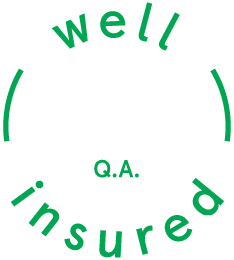Victoria will broaden a little-known tax to encourage more property owners to rent out empty homes and develop vacant land.
Treasurer Tim Pallas on Tuesday announced legislation would be introduced to expand the vacant residential land tax statewide.
Currently, the tax applies to residential homes unoccupied for more than six months a year across 16 inner and middle Melbourne councils.
Owners are annually charged one per cent of the property’s total value, meaning one worth $500,000 would be taxed $5000.
The proposed change will take effect in 2025, covering properties vacant for more than half of 2024.
Exemptions remain for holiday homes occupied by the owner for at least four weeks a year, properties occupied by owners for at least 140 days a year for work purposes and when ownership of the property changes hands over the 12-month period.
In a further change, owners of land in established parts of metropolitan Melbourne who do not develop it for five years or more will be liable for the tax from 2026.
“We can’t afford really to have vacant land in metropolitan Melbourne sitting idle year on year,” Mr Pallas told a Property Council breakfast on Tuesday.
“Our clear message to landowners is to either develop the land or sell it to someone who will.”
Mr Pallas denied blindsiding new premier Jacinta Allan with the announcement, insisting the policy was discussed by cabinet.
“I’m not making it up as I go along,” he told reporters.
About 900 Melbourne properties are subject to the tax at present, netting the state about $10 million.
Under the first part of the reforms, treasury estimates a further $6 million will be recouped from between 600 to 700 extra properties.
The second element is forecast to add another $31 million to the state’s coffers and apply to 3000 undeveloped properties.
“It’s not about revenue,” Mr Pallas said.
“It’s about getting assets rationally and fairly utilised to look after those who desperately need a home.”
Home owners are required to self-report to the state revenue office or face a fine of up to 90 per cent of the taxable amount if deemed to have intentionally disregarded the law.
Mr Pallas warned the revenue office has ways to check if the home is unoccupied but refused to disclose them.
The Property Council’s Victorian executive director Cath Evans said the announcement came as a shock to the industry after signing an affordability partnership with the government last month.
“It’s clear that without consultation … there has not been good faith in the execution of the agreement to date,” she said.
One of the first acts of Ms Allan’s tenure as premier was to slug Victorians with an increased tax, shadow treasurer Brad Rowswell noted.
The Greens welcomed the proposed change but suggested the tax would remain ineffective while vacancies were self-declared by property owners.
Victorian Council of Social Service interim chief executive Juanita Pope said it was “smart policy” to create a financial incentive for investors to build homes or relinquish empty land.
“Empty residential land banked by investors and land barons benefits nobody,” she said.
The Victorian government last month announced an Australian-first, consumer-facing levy on short-term accommodation bookings with platforms such as Airbnb and Stayz.
The proposed 7.5 per cent levy was the only tax unveiled as part of Labor’s long-awaited housing statement to boost supply amid a nationwide crisis.
Callum Godde
(Australian Associated Press)





